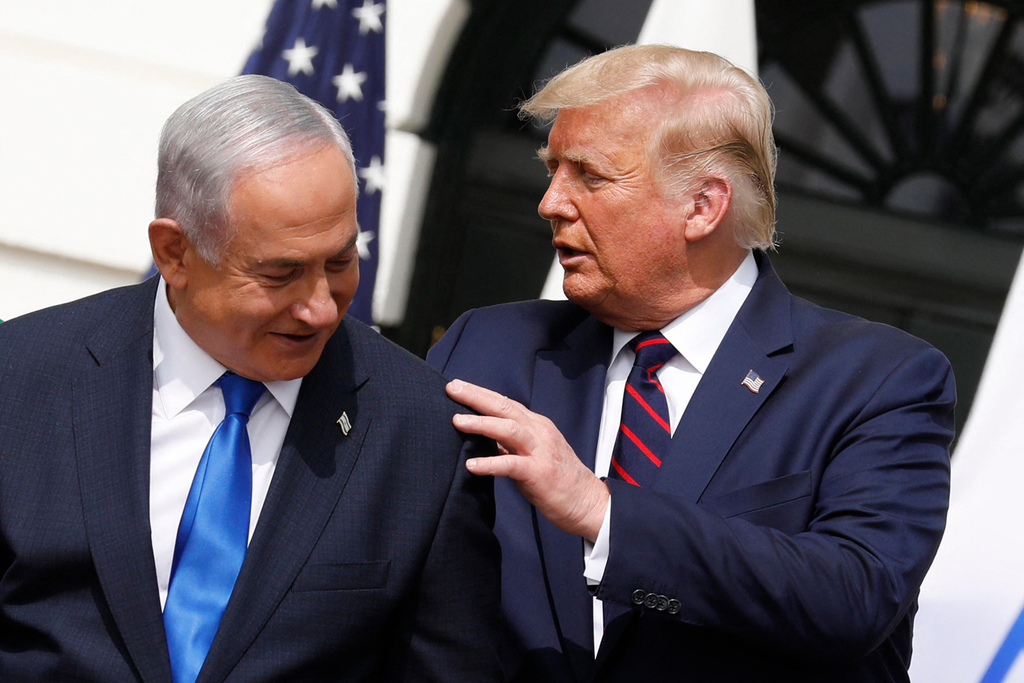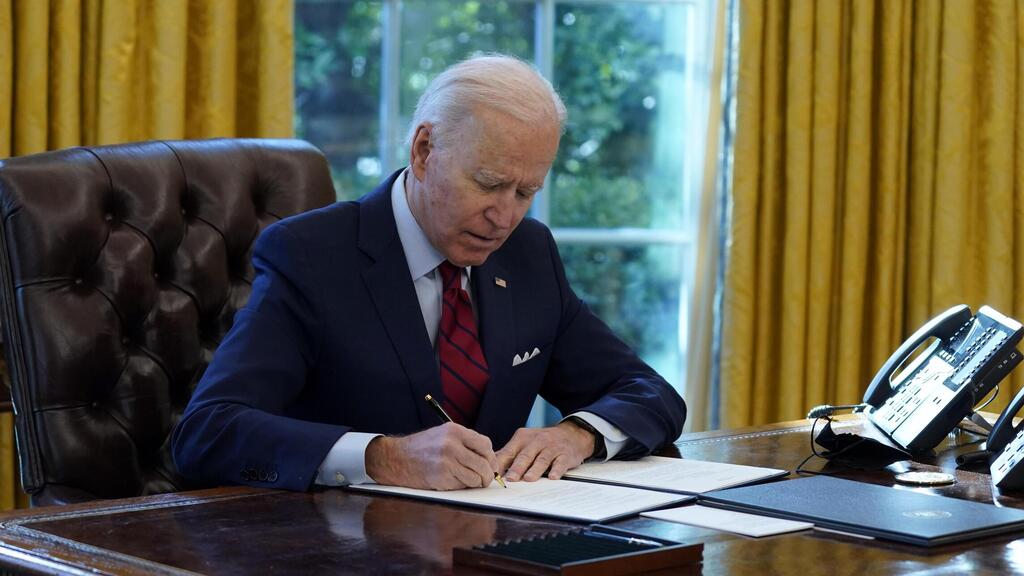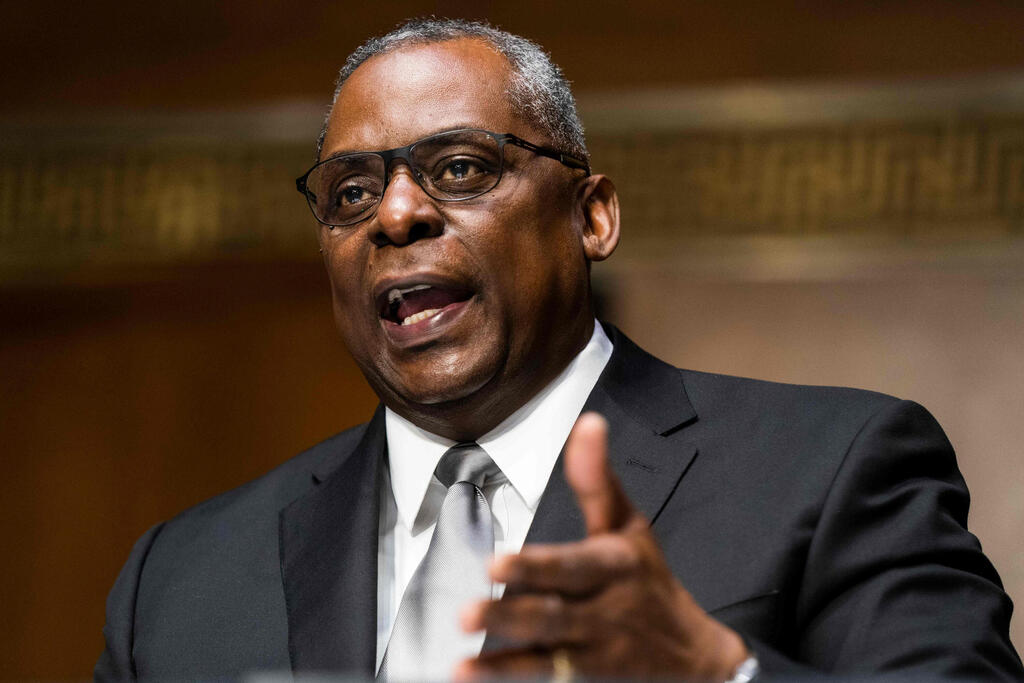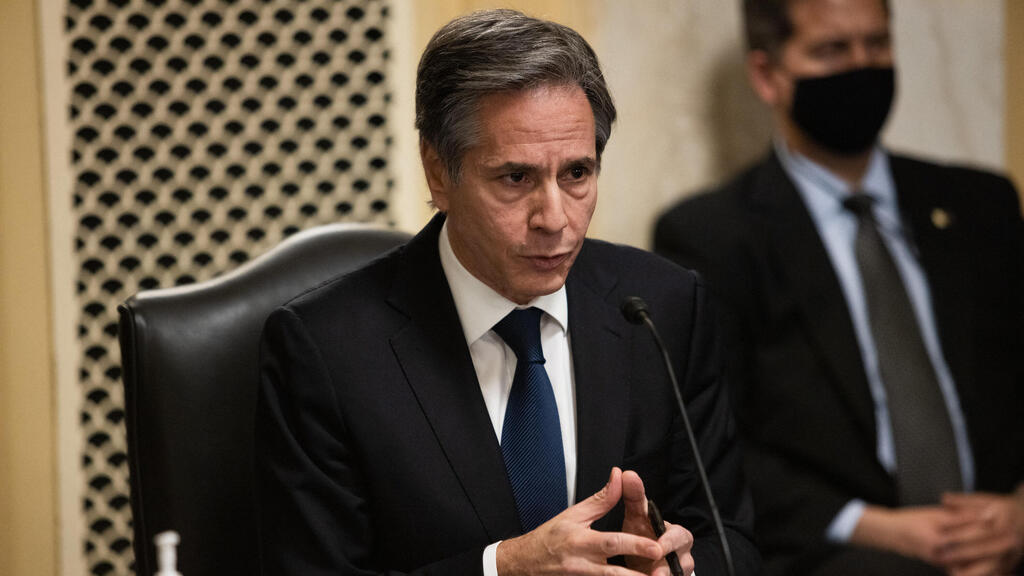Getting your Trinity Audio player ready...
Two weeks after his inauguration, U.S. President Joe Biden has yet to call Prime Minister Benjamin Netanyahu - a sharp contrast to his predecessor Donald Trump, who called the Israeli leader three days after entering the White House.
Biden was to deliver his first foreign policy speech from the White House on Thursday, flanked by Vice President Kamala Harris, covering a range of topics including Iran and the Israeli-Palestinian conflict.
The lack of communication between the two leaders may be construed as a statement from Washington that the Biden administration is less inclined to consult with Jerusalem on American foreign policy.
Officials in Israel are currently debating whether Biden is ghosting Netanyahu or is simply not interested in as close a relationship as the prime minister had with Trump - who took Israel into consideration in the majority of decisions he made during his four years in office.
It is important to bear in mind that Biden’s priorities are not the same as Trump's.
4 View gallery


Prime Minister Benjamin Netanyahu and former president Donald Trump at the White House last year
(Photo: MCT)
Biden, after all, promised he will do all in his power to heal America’s ravaged economy and narrow the societal gaps that only widened during the Trump era - all while devoting enough resources to fight global warming and contend with China.
And while Washington is dealing with Iran, it is a move born out of necessity due to Tehran’s rampant and consistent violations of the 2015 nuclear agreement.
Sources in Washington have sent signals and hints to Jerusalem that once Biden does embark on a round of conversations with Middle Eastern leaders, Netanyahu will have the honor of being the first among them.
Even so, some in Israel suspect that the lack of communication is a sign that Biden is not interested in giving Netanyahu any sort of leverage ahead of Israel’s March 23 elections - mainly due to the government and IDF Chief of Staff Aviv Kochavi lambasting Biden’s plan to return to the nuclear agreement abandoned by Trump in 2018.
Given that Biden has already contacted the leaders of Mexico, Russia, Germany, Australia, Canada, France and South Korea, it is hard not to get the sense that the president is indeed sending Netanyahu a message.
It is important to note that while Biden and Netanyahu have yet to speak, the administrations in Washington and Jerusalem are indeed communicating about the nuclear agreement with Iran and other Middle East issues.
Defense Minister Benny Gantz has spoken with his American counterpart Lloyd Austin and Foreign Minister Gabi Ashkenazi already talked to Secretary of State Antony Blinken.
Mossad chief Yossi Cohen is expected to arrive in Washington soon to meet with a long list of dignitaries to whom he will present Israeli intelligence on Iran's violations of the nuclear deal.
In the meantime, Netanyahu is expected to appoint a project manager to coordinate contacts with the United States and other officials in the international community on the Iranian issue.
So while Israel's voice is being heard, the words may prove to have fallen on deaf ears as the United States is already pushing to return to the nuclear deal despite Tehran’s refusal to make any concessions.




